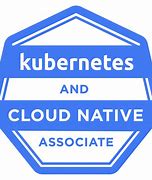Complete KCNA (Kubernetes and Cloud Native Associate) Certification Guide
A comprehensive study guide covering everything you need to know to pass the Kubernetes and Cloud Native Associate (KCNA) certification exam
KCNA Certification: Complete Study Guide
Domain 1: Kubernetes Fundamentals (46%)
Understanding Container Orchestration
Kubernetes is the industry-standard container orchestration platform. At its core, it automates the deployment, scaling, and management of containerized applications. Here’s what you need to know:
Key Kubernetes Components
- Control Plane: The brain of your Kubernetes cluster
- API Server: Front-end for the Kubernetes control plane
- etcd: Consistent and highly-available key-value store
- Scheduler: Assigns pods to nodes based on resource requirements
- Controller Manager: Maintains cluster state
- Nodes: The workers of your cluster
- Kubelet: Ensures containers are running in a pod
- Container Runtime: Software responsible for running containers
- Kube-proxy: Maintains network rules on nodes
Kubernetes Objects and Workloads…..
Every resource in Kubernetes is represented as an object. Let’s explore the essential ones:
Pods
The smallest deployable units in Kubernetes. A pod represents one or more containers that:
- Share the same network namespace
- Have access to the same storage volumes
- Are scheduled together on the same node
Deployments and ReplicaSets
Deployments manage ReplicaSets, which ensure a specified number of pod replicas are running at any time. Key features include:
- Rolling updates and rollbacks
- Scaling capabilities
- Self-healing mechanisms
Services
Services provide stable networking for pods:
- ClusterIP: Internal cluster communication
- NodePort: External access through node ports
- LoadBalancer: External load balancing
- ExternalName: DNS CNAME records
Domain 2: Container Orchestration (22%)
Container Basics
Containers provide consistent, isolated environments for applications:
- Image layers and caching
- Container lifecycle management
- Runtime security considerations
Container Registries
Understanding container image management:
- Public vs private registries
- Image tagging and versioning
- Security scanning and signing
Domain 3: Cloud Native Architecture (16%)
Microservices Architecture
Breaking down applications into manageable services:
- Service decomposition principles
- API design and management
- Inter-service communication patterns
Cloud Native Patterns
Essential patterns for cloud native applications:
- Circuit breakers
- Service discovery
- Configuration management
- Health checks and monitoring
Domain 4: Cloud Native Observability (8%)
Monitoring and Metrics
Understanding system behavior:
- Prometheus and metrics collection
- Grafana for visualization
- Alert management
- Key performance indicators (KPIs)
Logging and Tracing
Debugging and troubleshooting:
- Centralized logging solutions
- Distributed tracing with Jaeger
- Log aggregation patterns
- Correlation and analysis
Domain 5: Cloud Native Application Delivery (8%)
CI/CD Fundamentals
Automated software delivery:
- Pipeline design and implementation
- Continuous Integration practices
- Continuous Deployment strategies
- GitOps workflows
Infrastructure as Code
Managing infrastructure programmatically:
- Terraform basics
- Helm charts
- Configuration management
- State management
Exam Preparation Tips
Study Strategy
- Hands-on Practice
- Set up a local Kubernetes cluster
- Deploy sample applications
- Practice troubleshooting scenarios
- Documentation Review
- Kubernetes official docs
- CNCF landscape
- Cloud native patterns
- Practice Tests
- Take sample exams
- Time management
- Question analysis
Exam Day Preparation
- Get plenty of rest
- Review key concepts
- Prepare your testing environment
- Have required identification ready
Additional Resources
Official Documentation
Practice Environments
- Minikube
- Kind
- Docker Desktop
- Play with Kubernetes
Community Resources
- CNCF Slack channels
- Kubernetes forums
- Local meetups
- Online workshops
Remember: The KCNA exam tests your understanding of cloud native concepts rather than deep technical implementation. Focus on understanding the bigger picture and how different components work together in a cloud native ecosystem.
Good luck with your KCNA certification journey! 🚀
